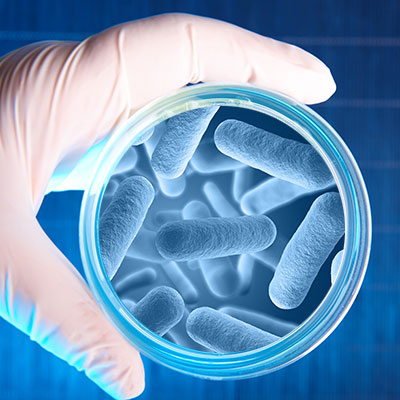
Legionella are bacteria belonging to the Legionella sp. genus that occur naturally in the environment, especially in aquatic environments (freshwater and manmade bodies of water). They can easily colonize water systems, which provide the perfect conditions for development:
- stagnant water with other microorganisms able to provide the nutrients that their own metabolism cannot produce, as well as scale or corrosion (iron, zinc);
- water temperature between 77°F and 113°F (optimum 90 - 95°F).
Legionellosis
Legionella spreads through the air and is inhaled in microdroplets of contaminated water (aerosols). In humans, contamination can cause:
- a benign illness with flu-like symptoms (Pontiac fever)
- a serious illness with pneumonia (Legionnaires' disease) which can cause death in vulnerable people. Legionnaires' disease is, therefore, a notifiable disease.
The severity of the infection depends on the number of microorganisms inhaled, the virulence of the bacterial strain and the infected person’s immune system. Legionella pneumophila serogroup 1 is by far the most virulent strain.
The most common source of contamination is showers.
In the event of a positive test result for Legionella:
First of all, the user's risk of exposure must be identified. Installing anti-Legionella filters is the most effective response in the following cases: widespread contamination; contamination level above alert levels; the serotype has been identified; a case of Legionnaires' disease has been diagnosed; the users are vulnerable patients.
Find out about our anti-Legionella solutions for Public Buildings.



